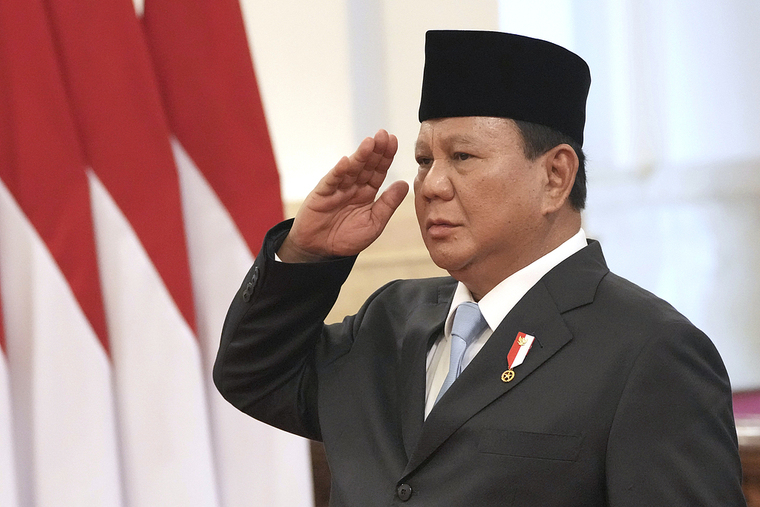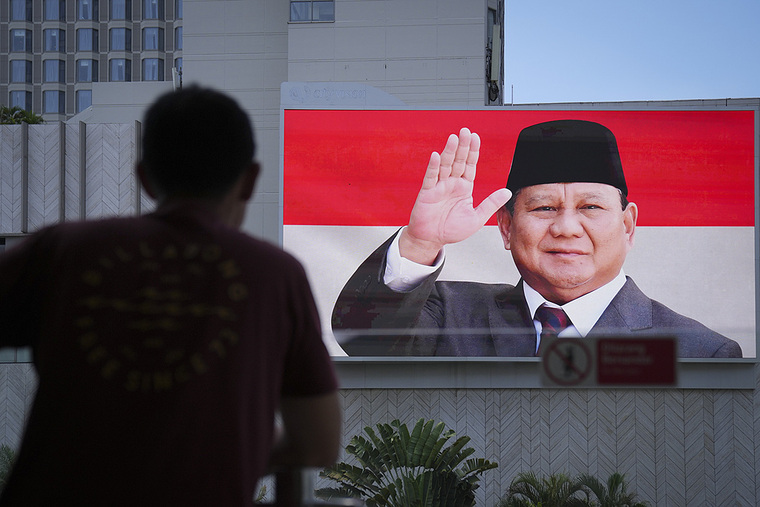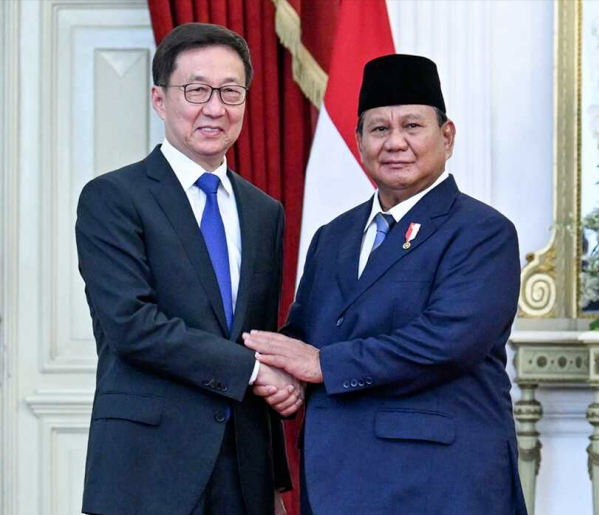Prabowo Invited to China and the U.S.: The “Free and Active” Principle in a Modern Geopolitical Landscape
Prabowo Subianto was inaugurated as president of the Republic of Indonesia on October 20, stepping in for Joko Widodo (Jokowi), who, over two terms, steered Indonesia towards notable economic and diplomatic advances. With Prabowo now in office, questions are surfacing about Indonesia’s foreign policy direction, especially in relations with major powers like China and the United States.
Early signs suggest Prabowo’s commitment to upholding Indonesia’s “free and active” diplomatic stance, a long-standing pillar of Indonesian diplomacy. According to Kompas on October 29, 2024, Prabowo is slated to visit China to meet with Chinese President Xi Jinping, Chinese Premier Li Qiang, and members of the Communist Party and the National People’s Congress (NPC) in Beijing.
Following that, Prabowo will be meeting with US President Joe Biden at the White House in Washington, DC. So, what’s Prabowo’s approach to foreign policy looking like within his first 100 days in office?

(Indonesian President Prabowo Subianto salutes during the swearing in ceremony of the new Chief Judge of the Supreme Court Sunarto, at the presidential palace in Jakarta, Indonesia, on October 22, 2024. /CFP)
Domestic Political Priorities and Economic Policy as the Foundation of Diplomacy
Indonesia’s foreign policy under Prabowo appears closely linked to domestic political priorities, especially the aim of strengthening economic stability. Prabowo’s target of achieving an 8% economic growth rate shows that foreign policy is set to support Indonesia’s domestic development agenda. By selecting China as his first destination, Prabowo highlights his intent to continue strategic economic collaboration with China, particularly in infrastructure investment and industrialisation. This move aligns with the concept of “economic interdependence” in economic diplomacy theory, where economic partnerships help strengthen a nation’s domestic political foundation and boost its international standing.

(Picture of Indonesian President Prabowo Subianto are seen on a giant screen outside a building in Jakarta, Indonesia, on October 20, 2024. /CFP)
The Ambiguity Strategy: A Multi-Faceted Diplomatic Approach
Prabowo has opted for a multi-directional diplomatic strategy known as “strategic ambiguity.” This approach is often applied by nations positioned between major powers, like China and the United States. Strategic ambiguity allows Indonesia to receive foreign investments without political entanglements, as seen in Prabowo’s effort to balance relations with both countries. His participation in multilateral forums like APEC and the G20, along with Indonesia’s association with the BRICS bloc, demonstrates Indonesia’s commitment to engaging in diverse economic and diplomatic alliances while safeguarding its autonomy.
The “free and active” principle gives Indonesia the flexibility to remain pragmatic, particularly in receiving investments from China while maintaining strong relations with the US. This approach positions Indonesia to play a flexible role, securing sovereignty and national interests. Prabowo’s stance reflects the “balance of power” theory, which underpins a non-aligned foreign policy and prevents Indonesia from becoming overly aligned with any one side in the increasingly intense geopolitical rivalry.
Domestic Political Competition and Prabowo’s Image as a Global Leader
Prabowo’s diplomatic steps are also intrinsically linked to Indonesia’s domestic political dynamics, helping bolster his image as a leader capable of safeguarding national interests amid global uncertainty. Prabowo’s background as a former Defence Minister, coupled with his international exposure from a young age, instils confidence in taking a more active diplomatic approach. Unlike Jokowi, who initially focused on domestic development at the start of his term, Prabowo appears keen to engage internationally sooner. This enhances Indonesia’s international profile while also strengthening his domestic position, securing support for major initiatives such as nickel-based industrialisation, which benefits significantly from Chinese investment.
China’s Response to Prabowo’s Diplomatic Moves
From an economic diplomacy perspective, China would do well to respond to Prabowo’s proactive stance by offering a more balanced and transparent form of cooperation that strengthens Indonesia’s economy without fostering over-reliance. A more cooperative and flexible approach aligns with the “win-win diplomacy” theory, which prioritises mutual benefits in bilateral relations. By adjusting its approach, China can maintain positive influence in Indonesia while ensuring that supported investment projects are genuinely beneficial for both nations.

(At the invitation of the Indonesia, Chinese Vice President Han Zheng attend the inauguration ceremony of the new Indonesian President in Jakarta on October 20, 2024.)
Prabowo’s Flexible and Proactive Foreign Policy
Overall, Prabowo’s foreign policy remains rooted in Indonesia’s “free and active” principles but takes a more flexible and proactive approach. By balancing national interests with an active global role, Prabowo is creating space for Indonesia to act as an independent global player, maintaining neutrality while asserting a stronger presence. This policy strengthens Indonesia’s international bargaining position without compromising autonomy, enabling it to build an independent and competitive stance amid global competition.
(Author: Harryanto Aryodiguno, Ph.D., Director of the International Cooperation Department and Assistant Professor of School of International Relations, Presidential University of Indonesia)














